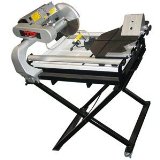What is porcelain tile?
Porcelain tile is a type of ceramic tile, it is manufactured using a series of unique clay minerals. Porcelain is a very resistant and durable product, it has a very hard surface and a solid structure. It is impervious to water, will not stain and has a extremely long life. It is sometimes termed stoneware.
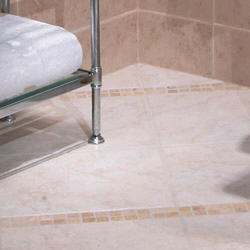
Figure 1 - Porcelain tile in a bathroom.
In homes the use of porcelain tile has grown dramatically over the last number of years. It has come down in price and the varieties in textures, sizes and colors has expanded greatly.
Note: A common misconception, is that all porcelain tile has its color and pattern from the top to the bottom of the tile. However, this is only true in approximately 5% of the porcelain tiles that are manufactured. Because most porcelain tile is glazed, if it is chipped or scratched you will see the basic clay that resides below the glaze.
In outdoor environments, the inherent density of porcelain, which makes it impervious to water, provides a frost resistant product that works extremely well in that application.
The higher density of porcelain compared to a basic ceramic tile does provide some comfort in that it a harder material and therefore less likely to chip. However, to make the statement that ceramic tile is a poor substitute for porcelain tile is completely ridiculous. The word ceramic is a generic term describing any flooring made from clay, there are many qualities of ceramic tile and many ceramics are more expensive than porcelain tiles.
In order to determine the resistance to chipping and scratching the industry has created a scale for all glazed tiles. The scale is identified as the PEI rating and shown in Table 1.
Table 1 - PEI Rating |
||
# |
Usage |
Resistance |
| 1 | Wall tile for bathrooms |
Scratches and chips easily |
| 2 | Bathroom floors. |
|
| 3 | Any residential application |
Should withstand normal |
| 4 | Commercial usage. |
|
| 5 | Heavy duty commercial |
Superior chip and scratch |
A comparison of chip and scratch resistance between ceramic and porcelain tile can be made in this manner. With the same PEI rating on a ceramic and porcelain tile they will chip and scratch in a similar manner when subjected to the same potential damaging object. A ceramic tile with a PEI of 3 will withstand chipping and scratching better than a porcelain tile with a PEI of 2.
Most home owners purchase tile based on its appearance and should consider to do so, while keeping in mind the usage of each of the PEI ratings. While a porcelain tile that has its pattern and color through the tile is a consideration, they are more expensive and the choices of textures and colors is limited.
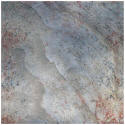
Basalto
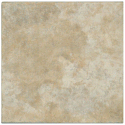
Cadiz Beige
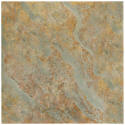
Lapillo
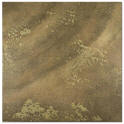
Nepal
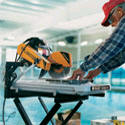
Figure 3 - Cutting porcelain tile
Cutting Porcelain Tile:
Porcelain tile can only be cut using a diamond blade that is continuously lubricated with water - wet saw. Wet saws can be purchased or rented.
Selection of wet saws.
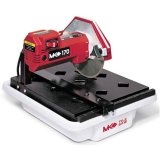
MK Diamond 157222 MK-170 1/2 Horsepower 7-Inch Bench Wet Tile Saw
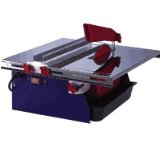
Northern Industrial Wet Tile Saw - 7in. Blade Size
